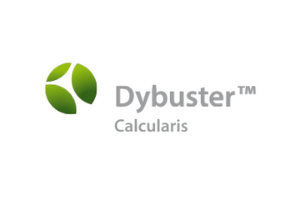A mathematical learning software for school and home use
Age Range:Grade 2-7
Completion Time:15-20 minutes, 3-4 times a week; 12 weeks initially
Dybuster Calcularis is a mathematical learning software application for school and home. It represents a unique way of assisting the brain in essential learning and maturation processes. Calcularis combines cutting-edge findings from neuroscience and neuropsychology with tried-and-tested principles from the field of computer science.
Dybuster Calcularis lays a solid foundation for mathematics and can be integrated easily in the day-to-day activities of the school
- Students can work with Calcularis without adult supervision, at any time and from anywhere – at school or home.
- Data is synchronized automatically by our server
- Can be downloaded directly from the website
- The progress of all students can be viewed & managed online
- Dybuster Calcularis Coach gives you insights into how your students are working
Features and benefits of Dybuster Calcularis:
- Personalization: Dybuster Calcularis uses advanced data analytics to adapt to the capabilities and speed of each individual user and supports children’s learning development in exactly the areas where their difficulties lie.
- Game based learning: The game-based courses help make learning fun. As a reward, users can purchase animals for a virtual zoo, increasing their motivation and enhancing their enjoyment in learning
- Independent training: Children work independently at a computer at school or home. While it’s important for adults to support and encourage learners, the software manages the training. Dybuster Calcularis indicates immediately – after

each input – whether the answer given by the child is right or wrong - Video tutorials: Instructional videos guide the user gently through the program and the 17 games
- Progress Monitoring:
- Personal Progress: Learners can track their progress using a fun animated graphic. This increases their motivation and encourages them to celebrate the acquisition of new skills
- Teachers: The Dybuster Calcularis Coach program is offered to enable administrators and teachers to see which fundamental skills are being developed and trained
Content & Administration
-
- Calcularis is divided into four number ranges of progressively increasing width: 0-10, 0-20, 0-100, 0-1000. In each of the number ranges, the user works in three different areas: number processing, addition and subtraction, and multiplication and division.
- Dybuster Calcularis trains the following mathematical skills:

- 17 different learning games – in a total of 48 different varieties – support neuronal processing of numbers and promote the development of basic mathematical skills
- The Dybuster Calcularis Coach program is offered to enable administrators and teachers to see which fundamental skills are being developed and trained

Proven Success:
Scientific studies have shown that targeted training leads to neuroplastic changes in the brain in areas associated with the development of mathematical abilities (K. Kucian, 2011). After just six weeks of Calcularis training, learners can solve over 31% more math problems (T. Kaeser A. B.-M., 2012) and increased their subtractions skills from an average percentile rank of 12.9 to 29 percentiles (T. Kaeser, 2013). In a more recent study, learners showed significant improvements in number line tasks (L. Rauscher, 2016). In addition, Calcularis has been shown to reduce math anxiety (M. von Aster, 2015).
Contact us for more information on Dybuster Calcularis
Call: 1-888-988-8048
Tech Support: Dybustersupport@pearson.com
Sales/Info: Dybusterinfo@pearson.com
Dybuster AG, a Swiss company, is the owner of Calcularis
Pearson Clinical Assessment, a business unit of NCS Pearson, Inc., is the authorized distributor of Calcularis within the United States
Dybuster and Dybuster Calcularis are trademarks in the UK, Switzerland, France, Austria, Germany, U.S., Canada, India, and Brazil and/or other countries.
View the Calcularis Getting Started Guide
Download a Free Trial of Dybuster Calcularis
Dybuster Calcularis Overview Video – Learn more about how Dybuster Calcularis
Resources
- Calcularis Brochure
- Dybuster Calcularis Order Form
- Computer-Based Programs for Enhancing Mathematical Skills and Spatial Number Representation in Primary-School Children
- Mental Number Line Training of Children with Developmental Dyscalculia
- Design and Evaluation of Calcularis Computer-Based Training to Enhance Numerical Cognition
- Modeling and Optimizing the Process of Learning Mathematics
Pre-recorded Webinars
-
Working Memory and Math, Dybuster, Cogmed
Presenter: Peter Entwistle, PhD

Working memory deficits have frequently been found to correlate with some math difficulties while other deficits also contribute to problems in acquiring math skills. This webinar will consider both working memory deficits and students who have difficulties with the ‘mental number line’. Pearson presently offers two relevant programs for addressing these math difficulties: Cogmed working Memory Training and Dybuster. To provide context for understanding the salience of these programs the webinar will define working memory and the ‘mental number line’. Secondly, we will articulate which math difficulties are correlated with working memory deficits and whether there are any age differences in these trends. As expected Cogmed working memory training has been found to result in improvement in working memory, but also, intriguingly, some studies have found improvements in math. Highlights of these studies will be reviewed. Pearson also offers a program called Dybuster in which students directly train the ‘mental number line’ or number line skills. Aspects of this web-based and game-based mathematical program will also be presented along with relevant research highlights. In short, this webinar will provide you with two innovative ways to address problems with math.
Date: Dec 06, 2017
-
Using Assessment Results
Presenter: Chris Huzinec

This presentation will describe several assessments and interventions used to evaluate student math performance. It will examine how to use the results, how they can be aligned with classroom assessment efforts, and how the assessments can be used to monitor individual student progress.
Date: Oct 11, 2017
-
Using Assessment Results
Presenter: Chris Huzinec

This presentation will describe several assessments and assessment-based interventions which can be used to evaluate student math performance. Additionally, it will show administrators how use data results from assessments that examine the fundamental cognitive processes and skills depicted by the math performance data.
Date: Oct 10, 2017
-
Working Memory and Interventions
Presenter: Peter Entwistle, PhD, Dierdre Metcalf

In this webinar we will describe what working memory (WM) is, how it differs from other types of memory, why it is important and how to assess working memory. We will consider who is at risk for WM problems, which patient populations may present with WM challenges and then we will review different approaches to improving working memory. We will review strategies to improve WM. We will also focus on interventions that use a computer application to cognitive training or rehabilitation and the listener will understand how to implement a program with fidelity to ensure it is successful. Specifically we will look closely at Cogmed & a new program to improve math skills in children with dyscalculia, or learning disability in mathematics. That program is called Dybuster Calcularis.
Date: May 23, 2017
-
How can we help students like Amy who are struggling in Math?
Presenter: Adam Scheller, PhD

As professionals working within the education systems, we have all witnessed the difficulties experienced by struggling learners. Through effective quality education most students are able to acquire a level of knowledge to meet classroom education goals. However, there are a subset of learners for whom this acquisition requires a more significant level of intervention. For those struggling with math, such as our student Amy, this problem persists. During this one-hour webinar, Dr. Scheller will discuss the case of Amy, an elementary school student, who continues to miss math benchmarks, despite receiving a level of instruction that is effective for her peers. This is a case of math learning disability as shown through identification, intervention, and progress monitoring.
Date: Dec 12, 2016
 PDF: How can we help students like Amy who are struggling in Math?
PDF: How can we help students like Amy who are struggling in Math? Video: How can we help students like Amy who are struggling in Math?
Video: How can we help students like Amy who are struggling in Math?






